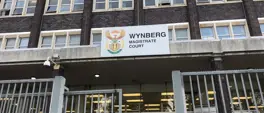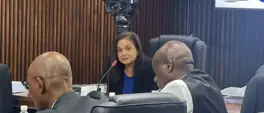MARK ALLEWELL: Is solar still worth it? Yes – even when Eskom's lights (mysteriously) stay on
Mark Allewell
12 December 2024 | 10:02Consumers are increasingly moving towards smart, adaptable energy setups – and we should all strike while the iron can still heat up, writes Mark Allewell.
For anyone who has been lucky enough to spot a leopard, rhino, or any other hard-to-find wild animal on a game drive, the innate and immediate desire to remain as quiet, hidden, and still as possible kicks in quite instinctually.
Why? Because we know that too much noise and motion may just ruin the view by scaring off the focal point of our attention and leaving us with the feeling that we may go years without another chance at seeing such a rarity again.
Game drives are not the only place where this behaviour can be witnessed, however. Being able to leave work early is, for most of us, a notable but rare event. So, when those days do roll round, we bathe in the extra few hours we are able to claw back from our otherwise busy lives.
But what if it started happening every day? Would we be bringing it to the attention of those around us more? Probably not, least of all because we feel that we may inadvertently have the experience terminated just by directly acknowledging it.
DON’T SAY IT TOO LOUDLY, OR LOAD SHEDDING MAY RETURN
Nationally, South Africans have on a macro scale collectively been engaged in this exact same behaviour since March 26, 2024.
As of November, we have been without load shedding for more than 200 days (and counting).
But recognition of this bountiful period of light, heat, and the ability to charge our phones has been discussed in rather subdued and hushed tones.
Like staring at the sun, talking about our potential emergence out of our very own modern dark age remains a dangerous thing to do - instead, we briefly glance at the topic or idea when it comes up during conversation, only to quickly push on to more concrete matters so as not to risk doing irrevocable damage to our current electric health.
Learned pessimism has played a part in reinforcing this behaviour, as we have been burnt one too many times in the past from our high (yet completely justified) expectations of a functioning national grid – so much so that our pessimism has come to taint other matters related to power.
Consider the pessimism in the media surrounding the solar market: news of an oversaturated solar market comes off the back of panels often being sold below cost, leaving many potential buyers sceptical of solar (in general) and sparking questions around whether its adoption remains a good investment?
SOLAR: AN INVESTMENT THAT STILL COUNTS
South Africa’s embrace of solar has largely been done in an attempt to relieve the pain of load shedding. But our quietly sanguine outlook on our national power crisis leads us to expect fewer Eskom-generated body-blows (at least across the near future), begging the question: does the technology’s practicality still warrant investment at the household level across the country?
To answer this question, just look abroad: many developed nations have high levels of solar uptake despite no instigating power grid instability, all for the simple reason that solar technology is an investment in and of itself.
Where other more traditional long-term investments generate wealth indirectly, long-term savings on electricity are a direct wealth generating investment accompanied by the added benefit of power security and the ability to keep the lights on.
The current low-cost solar environment, thus, presents a golden opportunity to invest – not just to stave off the spectre of load shedding, but as a long-term cost-saving investment.
Just as a financial portfolio requires multiple different investments to reduce risk and promote stability, so does a solar system. Crucially, solar panels alone may not yet deliver the cost savings many consumers anticipate – but luckily, your investment can be injected with greater efficacy and stability via the addition of smart technology, which is rapidly becoming essential for homeowners looking to maximise the benefits of solar energy (as the integration of energy management systems, smart metres, and automated controls significantly enhance efficiency and promote lower energy costs).
By using these technologies in concert, homeowners can manage their energy consumption in real time, ensuring that high-demand appliances – such as geysers and pool pumps – are, for example, powered by solar energy during peak sunlight hours.
SMART TECH AS A GETAWAY TO LONG-TERM RETURNS
But beyond the direct savings, a solar system amplified by smart technology is also a gateway to medium- and long-term returns. The growing interest in energy-efficient solutions is evidenced by a marked increase in searches for inverters, as noted by Property24 in particular.
Cities like Pretoria and Cape Town have experienced the highest levels of inquiry, highlighting a shift toward smarter energy solutions in both rental and sales markets.
Renters, in particular, are leading this trend, actively seeking flexible, tech-assisted energy systems that allow for energy efficiency without necessitating permanent installations.
This rising demand signifies a broader movement towards smart, adaptable energy setups, where consumers prioritise technologies that enhance their energy independence and sustainability. As interest in inverters outpaces that of traditional solar panels and generators, it becomes clear that a new era of energy consumption is unfolding – one where adaptability and efficiency take centre stage in the quest for cost-effective, renewable energy solutions.
Even if we may believe that our current energy oasis is nothing more than an Eskom mirage, we should not look to all emerging trends in energy with the same suspicion – the solar industry remains a viable financial investment.
And with solar panel prices reaching ever-greater lows, coupled with smart technology’s ability to boost solar systems’ savings and efficiency, we should all strike while the iron is hot – or, at least, while the iron can still heat up.
Mark Allewell is CEO of Sensor Networks.
Get the whole picture 💡
Take a look at the topic timeline for all related articles.
Trending News
More in Opinion

12 December 2025 15:34
CHARLES MATSEKE | The Republic of commissions arrives at its point of no return

12 December 2025 14:15
REBONE TAU | Ekurhuleni needs bold, decisive leaders to reverse years of capture

12 December 2025 05:13
MANDY WIENER | Searching for a superhero with a spine of steel: Why the position of NDPP matters so much












